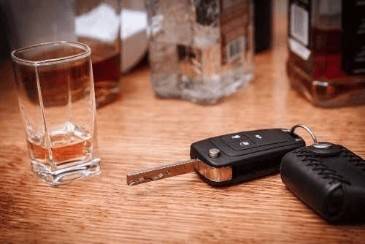The consequences of a DUI in Colorado can be swift and harsh. Defendants only have a limited amount of time to fight a driver’s license suspension after an arrest, and a judge can issue hefty criminal penalties, including jail time and court fines, for a single incident. Even before your trial is complete, you may have to install an ignition interlock device in your car and abstain from all alcohol. But one of the most dehumanizing requirements is a SCRAM.
SCRAM Devices Explained
 A SCRAM, or a Secure Continuous Remote Alcohol Monitor, is an electronic device that allows the court to track whether or not a user has ingested alcohol recently. When someone ingests alcohol, it is filtered through the bloodstream and liver until it is either metabolized or released in urine, saliva, breath, or sweat. SCRAM devices analyze their wearers’ sweat to detect whether they have recently ingested alcohol. Most SCRAM devices test for alcohol use at least once per hour and submit that information once a day to a Regional Monitoring Center, which works closely with the local courts to monitor defendants.
A SCRAM, or a Secure Continuous Remote Alcohol Monitor, is an electronic device that allows the court to track whether or not a user has ingested alcohol recently. When someone ingests alcohol, it is filtered through the bloodstream and liver until it is either metabolized or released in urine, saliva, breath, or sweat. SCRAM devices analyze their wearers’ sweat to detect whether they have recently ingested alcohol. Most SCRAM devices test for alcohol use at least once per hour and submit that information once a day to a Regional Monitoring Center, which works closely with the local courts to monitor defendants.
A SCRAM will detect alcohol at lower limits than a field sobriety test or breathalyzer. These tests focus on determining if the defendant has a blood alcohol concentration of 0.08% (driving under the influence) or 0.05% (driving while ability impaired). SCRAM, however, checks to see if a defendant has any alcohol in his or her system – often as low as 0.02%.
Removing or tampering with a SCRAM device can have serious consequences. Regional Monitoring Centers have safety measures that warn them when a device is removed or tampered with, and they will quickly notify the courts if you attempt to remove it on your own. A judge may rescind whatever release agreement he made with you and send you to jail for defying a court order.
Who Has to Wear a SCRAM?
Certain defendants are required to wear SCRAM devices around their anklets following a DUI arrest to be released on bail, and it is common for repeat offenders, in felony DUI cases, or for individuals the courts believe have substance abuse issues. During a bail hearing, the judge may agree to release the defendant on bail or his own recognizance if he agrees to avoid alcohol throughout his trial. To keep the defendant to his word, the judge may require him to wear a SCRAM until the end of his trial. SCRAM devices can also be required as part of a defendant’s criminal penalties, along with probation and parole, and defendants are required to pay any related fees for the device.
Are SCRAM Devices Reliable?
SCRAM devices are marketed to criminal courts as a reliable way to monitor DUI defendants and evaluate them for substance abuse issues, but there are some problems with them. As with breathalyzers, it is possible for these devices to register a false positive if they are damaged or defective. SCRAM devices must be manufactured and placed on defendants correctly for them to function properly, and any mistakes can lead to inaccurate readings.
Another factor to consider is how the SCRAM detects alcohol. SCRAM devices utilize a baseline for measuring alcohol in a wearer’s system and look for spikes above this baseline to log a violation. Given that alcohol is in everyday products like hairspray, cologne, or cough syrup, SCRAM may detect alcohol in these materials and submit a notification to the court, even though it only registered a brief spike. The court may not dig deeper to analyze the SCRAM’s report to determine if your violation was due to an everyday product, leading to unfairly harsh consequences for you.
Challenging a SCRAM Device
A SCRAM is an invasive way for a court to monitor defendants, which can put undue burdens on them before they have even been tried for a crime. At The Bussey Law Firm, P.C., our Colorado Springs criminal defense attorneys believe that defendants deserve the chance to defend themselves in court without unnecessary restrictions, and we are here to provide the strongest advocacy possible. Our team has successfully fought for numerous defendants throughout Colorado Springs and has an excellent track record in DUI cases. Our founder, Timothy Bussey, is one of the only attorneys in Colorado with the ACS Forensic Lawyer-Scientist Designation. If you need a strong DUI defense, contact The Bussey Law Firm, P.C., at (719) 475-2555.
